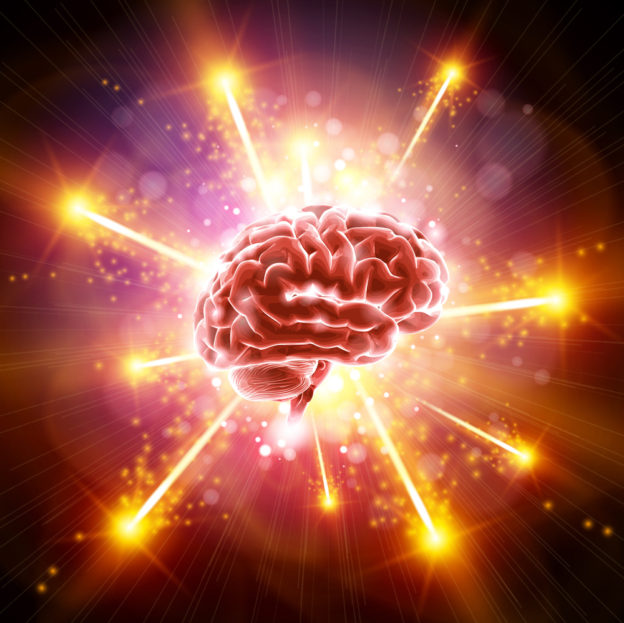By David Blyweiss, M.D., Advanced Natural Wellness
November 9, 2016
- Are “senior moments” a part of the aging process?
- Mental workout powers up your brainpower
- Another shortcut to a sharper and more flexible brain
Is your brain starting to play tricks on you?
I’m talking about those little glitches that keep you from remembering the name of a co-worker or the title of a song you’ve been listening to since you were a teenager. You knew it yesterday so why can’t you remember it today?
Well, your brain can be a tricky thing. Some memories seem to stick to it like glue. Others come and go as they please. A few might even feel like they’re leaking out faster than your brain can store them.
You may attribute these brain slippages to age, calling them a “senior moment”. But I’ll bet you know plenty of people older than you who are still sharp as a tack. So are these mental hiccups really age-related?
Not necessarily.
Your brain is an area where the old adage “use it or lose it” applies.
You see, the connections in your brain are constantly changing. New connections are made, while others disappear. Brain cells are constantly regenerating. It’s like a roadmap that changes every day.
MD Exposes the Hidden Danger to Your Eyes

When your eyesight starts to fail, it's a real problem. Suddenly you can't go to the grocery store... you can't get to the doctor if you have an emergency... you can't meet your friends for dinner…
Your "regular" doctor doesn't have time to keep up with the latest research. And the same goes for eye doctors. They go to school to learn how to fit you for glasses and contacts, but have no way of preventing the damage and loss of eyesight that threatens your freedom and independence.
Let me show you something that explains a LOT about how your eyes work.
In my FREE Special Report, I'll show you a HUGE, untapped resource for your eyes that safely and naturally restores clear, effortless eyesight.
Click here to get started...
However, if you stop fueling your brain with new challenges, it can’t produce new pathways. You start losing neurons and the synapses that allow them to “talk” to each other. This creates a situation where you’re left with a lot of disappearing connections and very few new ones. The brain that wires together fires together.
That’s when those annoying brain glitches start to develop.
Thankfully, there are several ways to teach your brain new tricks so that you can rewire those connections and create new neuronal pathways.
Mental Workouts to Power up Your Brainpower
No matter how old you are, your brain has the ability to adapt, change and create new connections. This phenomenon is called “neuroplasticity”. It’s one of the greatest discoveries we’ve made in the past 50 years, and it’s much more exciting than it sounds.
Just imagine! You can make your brain smarter… make it learn faster and retain more information… by simply doing things that improve plasticity.
The question is, how do you activate it? Well, the answer is pretty simple.
One way is to flex your brainpower by learning new things. This is like exercise for your brain; the more you learn and the greater the challenge, the stronger your brain will become.
So if you want to keep your brain firing on all cylinders, give it a good workout on a regular basis, just like you would the rest of your body.
One of the most challenging puzzles for your brain is to learn a new language, or a new skill. Whether it’s digital photography or
The World's Quickest Solution for Ending Prostate and Urinary Misery
This has recently been revealed to be one of the only real breakthroughs in prostate health.
The seeds of a strange fruit (sometimes called "Chinese Apples") hold powerful phytonutrients that are a revolution in prostate health.
In fact, UCLA and Veterans Administration research have now proved this to be true.
Not only that, but it may be the worlds quickest solution for ending prostate misery.
Simply stated, these phytonutrients represent a huge step beyond beta sitosterol, saw palmetto, and other phytosterols alone.
Simply click HERE if you want to have fast prostate relief...restful, uninterrupted sleep...no more constant "urges to go"...enhanced virility...and optimal prostate support for life.
playing the piano doesn’t matter. That it happens, matters.
When people start studying a second language, neural changes begin to occur in the very early stages of learning. And over time, additional changes can be seen in the structure and electrical activity of learners’ brains.
Activities that require you to stretch your brainpower – like the above examples or even playing chess, participating in debates or learning how to meditate – can also help form new connections and regenerate brain cells.
Even things as simple as travelling a different route or going someplace you’ve never been before can stimulate your brain enough to increase plasticity.
The idea is to regularly participate in activities that are new and different, every single day.
But mental exercise isn’t the only way to expand your brainpower.
Another Shortcut to a Sharper and More Flexible Brain
When you combine physical exercise with regular mental challenges, you can get even more impressive results. That’s because daily physical exercise boosts production of something called brain-derived neurotrophic factor, or BDNF.
This protein encourages the growth of new neurons and improves their function. It also enhances synaptic activity, so your brain can make the right connections more easily and readily.
This is only one of the reasons I advise my patients to get at least 15 minutes of high intensity interval exercise each day (of course after your doctor says it’s ok). It doesn’t take much time and the benefits are enormous.
All you have to do is perform a short burst of high intensity exercise. For example sprint or walk briskly for about 30 or 40 seconds. Then, slow down for a minute or two to catch your breath before your next burst. Repeat four to six times.
Don’t wait. The sooner you get started, the more quickly you’ll feel the effects of a sharp, witty and more flexible brain.
SOURCES:
Osterhout L, et al. Second-language learning and changes in the brain. J Neurolinguistics. 2008 Nov; 21(6): 509–521.
Batterink L, et al. Implicit and explicit second language training recruit common neural mechanisms for syntactic processing.
J Cogn Neurosci. 2013 Jun;25(6):936-51.
Schlaug G. Musicians and music making as a model for the study of brain plasticity. Prog Brain Res. 2015;217:37-55.
Geda YE, et al. Physical exercise, aging, and mild cognitive impairment: a population-based study. Arch Neurol. 2010 Jan;67(1):80-6.
Gomez-Pinilla F, et al. The Influence of Exercise on Cognitive Abilities. Compr Physiol. 2013 Jan; 3(1): 403–428.







